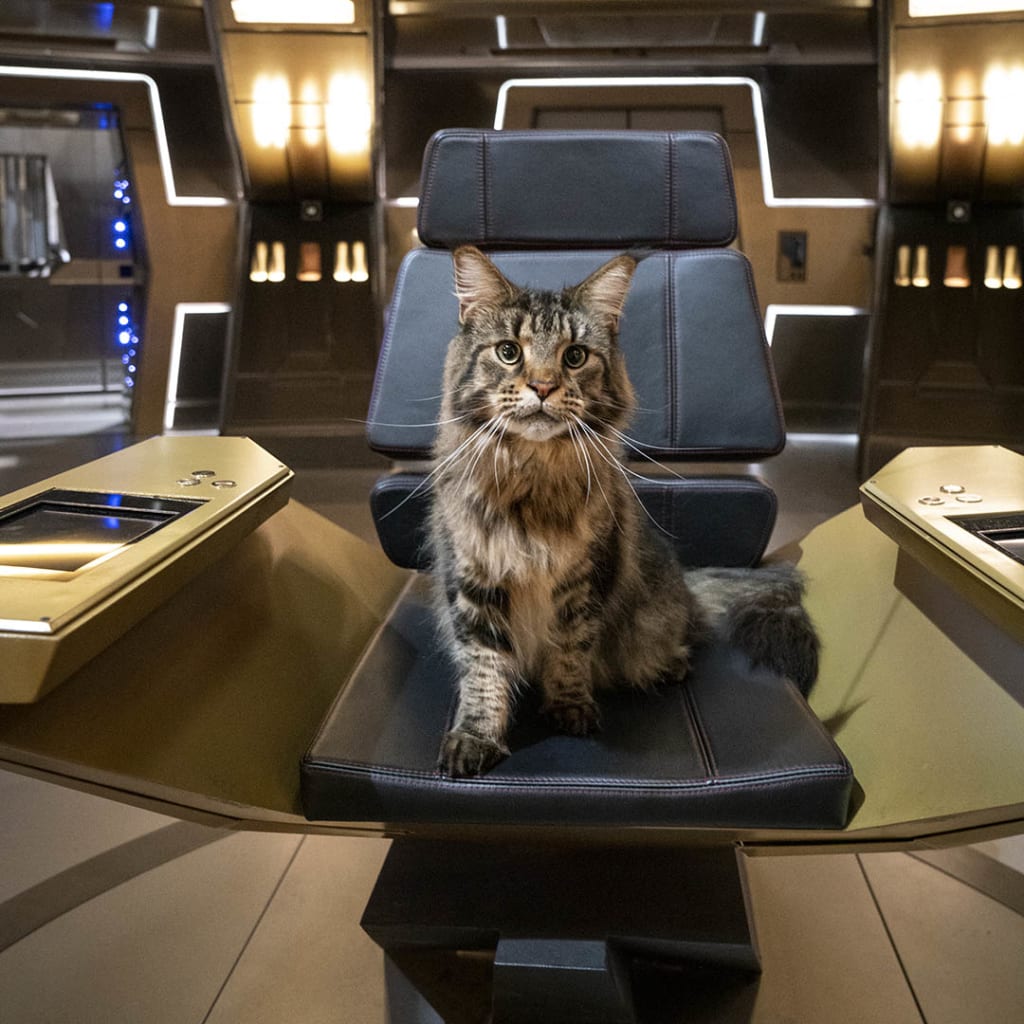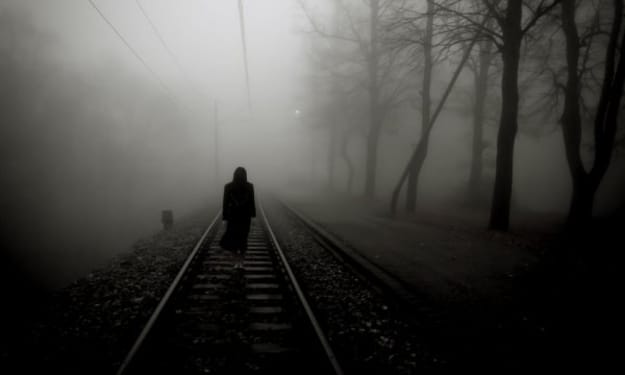
I am, at my heart, a relatively uncritical consumer of media. I don’t really have the focus to go through a film or series with a fine-toothed comb looking for errors and inconsistencies, a lot of my opinions on media are very impressionistic, I consider the feelings that I’m left with after I watch something rather than picking it apart for specifics. If it felt well-written and enjoyable, well, that’s good enough for me.
As such, the first two seasons of Discovery left me with one massively overriding impression after every episode: that this is not really Star Trek, and while it wasn’t enough to ruin my impression of the cast, who did a great job with the shoddy material they were given, I was consistently left with the impression that something was missing, something quintessentially Trek that wasn’t included in the slick made for social media formula. It turns out that thing was hope.
I think that by now most of us are aware of the severe issues surrounding bullying and harassment that were occurring in the writing room, so I shan’t lay much blame at the feet of the writers; and I shall only note in passing that the marked improvement that we’ve seen in season three shows that it is perfectly possible to have good new Trek so long as Alex Kurtzmann is thrown out of an airlock . I also think that it’s important to be fair to Discovery by pointing out that with the exception of TOS, for which there was no precedent, every single series of Star Trek from TNG onwards has had a fairly crappy first two seasons, only really finding its feet after a couple of years, so perhaps it’s unsurprising that we got off to such a rocky start with Discovery.
So, with those caveats out the way, how exactly has season three improved and become something a lot more recognisably Trek? To do that, let’s look briefly at the issues with the first two seasons. The best comparison I can think of to highlight the difference is between season one and season three. Season one essentially felt like someone who is paid far too much had been locked in a room somewhere until they uttered the words “What if Game of Thrones, but in space?”, to which a whole load of other people who are paid far too much had looked at the Game of Thrones viewing figures and gone “That’s it! That’s the idea! Clearly people love TV that makes them miserable!” and then all those people gave themselves big congratulatory slaps on the back and walked away satisfied, never once pausing to consider that maybe people watch different TV shows for different reasons, and that Star Trek was meant to be a utopian vision of the future and not a grimdark hellhole
Sorry, that paragraph kind of got away from me; I didn’t want to dwell too long on Discovery’s past failures, but clearly I still have some stuff to work through regarding season one.
Season three, by comparison, somehow manages to make Discovery feel more utopian. Even though it’s set in the smashed-apart ruins of that utopia, this is a significant achievement in terms of its writing, and finally gives us a cause that we can really root for. I say this because despite both the first two seasons having an arguably admirable cause, in season one fending off the Klingon empire and saving the universe, and in season two saving all sentient life in the galaxy, the way this material was treated and presented made it difficult to engage with. When Section 31 was first introduced in DS9, it explored a host of questions about compromising your principles for security. When this was introduced in Discovery, we found not only a Starfleet that had already so thoroughly compromised its principles that it was hard to even care about its survival, but that a more action-oriented format for the show meant that it was impossible to explore deeper or more meaningful questions. Then, when Starfleet discovered that genocide and the threat of genocide was within its moral compass suddenly the Klingons didn’t seem all that bad.
Season two was somewhat better in this regard: the cause was to save all sentient life in the galaxy from the monster of Starfleet's own making; however, once again the series sacrificed meaningful and moral discussions for the sake of high octane (for Star Trek anyway) action . This was compounded by the seriously large amount of logical and continuity inconsistencies that occurred often within minutes of each other, which gave the overall feeling that Starfleet is such a hot mess that any kind of unity of purpose is impossible. More realistically, this was a reflection of the fact that the writers were under such incredible strain that they sacrificed story for soundbites and that any immoral or out-of- character acts could be made up for with not all that inspirational, overly earnest, deeply contradictory speeches.
So if season one was Game of Thrones in space, and season two was “look at the nostalgia, not the plot” (Honestly, how they thought that would work well after Enterprise is a decision I will never fully understand), what does season three do that’s so much better?
Firstly, Starfleet, despite its dire circumstances seems to be clinging on to its principles so much better than previously. Although there is some suggestion of maybe some darker stuff around Georgiou’s interrogation, the new Starfleet has been a breath of fresh air. After the first two seasons I was fully expecting Admiral Vance to end up as “that incompetent captain from old American cop shows who constantly demands the protagonists badge and gun” and I was pleasantly surprised in episode six when he acknowledged Discovery’s importance, and emphasised how uniquely positioned they were to help. Even when he was chewing out Burnham and Saru, his opening argument wasn’t “you shouldn’t have done that reckless thing” it was “you should have trusted me enough to talk to me and let me decide if it was worth the risk.”
This principled Starfleet is further reinforced in episode six when out of the three missions given out to the various captains, every single one of them is a humanitarian mission: despite the pressure from the Emerald chain, and how violent a place the galaxy must be in general, Starfleet is avoiding committing itself to fighting and is instead providing solar shields, replacement replicator technology and long-term committing sparse resources to keeping Federation worlds supplied.
Even both of the former Federation planets seen so far, Earth and Trill, don’t seem to have fallen as far as they could have, and the emphasis in both places has been that, in a dark time, they just need to be reminded of the value of humanity, hope and wonder in order to start opening up again – that while fear and isolationism seem like the right response to their circumstances, progress will only come from opening up, trying to understand, trust and help others. I very much feel that had this plot been written under the series one principles then Earth would have been a totalitarian, fascistic dictatorship indistinguishable from its Mirror counterpart.
Secondly, the way characters have been written has also significantly improved, both the old and the new, mostly by adding a certain depth that was entirely lacking in the first two seasons. I’ve already covered Admiral Vance above, and Book is turning out to be a very interesting character: someone who is highly individualistic but also very principled, willing to put himself in harm's way in order to do what he feels is right. This is not only good in and of itself but also gives Burnham’s character a great deal more shape. I think that it’s safe to say at this point that a certain amount of rebelliousness is an inherent part of Burnham’s character, and her year with Book appears to have given this rebelliousness some much-needed direction. Essentially, Burnham’s rebellions now seem to be in line with her principles both as a person and as a Starfleet officer, rather than against them – I’m very much hoping for no more Vulcan Hello incidents.
Even characters who previously grated on me a great deal have become a lot deeper. Take Stamets for instance: previous contender for most arrogant man in the universe, we now see less as an arrogant egomaniac who is arrogant because he is oh-so smart (which was an entirely facile characterisation), and more someone who recognises that other people bring a great deal to the table, but is struggling with his own deep seated need to make himself seem as useful as possible because of his own insecurities.
Empress Georgiou, another character that previously got under my skin because she was characterised as irredeemably evil, just “‘cus evil is evil ya know?”, has been given a lot more depth around her relationship with Burham, and finally a storyline that doesn’t seem to revolve around being an evil badass constantly frustrated with the fact that no one around her is willing to be an evil badass because being an evil badass is awesome.
Watching Saru grow into his role as captain, willing to put aside his personal pain and discomfort for the good of his crew has been an absolute delight, and I’m really looking forward to seeing how this character grows and evolves.
Adira is a wonderful character, and although I initially had reservations about the fact that Adira and Gray seemed to fall into the all queer characters must have a tragic backstory trope, the fact that Gray remains by their side as a result of this strange joining I really like and I’m excited to see how it turns out, with the caveats that I will be very disappointed if it turns out to be a whole, “you need to let go of your past, I will always be a part of you” story , and some irritation that the first actual trans character in Star Trek got killed straight away showing that the “bury your gays” trope is still alive and kicking.
Finally, the way that the Discovery crew is dealing with their collective trauma has been very well and sensitively written; obviously they’ve made Culber and Detmer the lens through which this process is viewed, and they were both extremely good choices. The fact that the writers have acknowledged that this is a traumatic experience for the crew, and that the trauma isn’t just handwaved away at the end of the first episode is great. Through their choice of Detmer, they reinforced a couple of points that I think are really crucial: firstly, that you don’t have to be a man, or particularly masculine to be “macho”, that just because you’re “macho” doesn’t mean that you don’t sometimes need help, and that even though it’s difficult, seeking help can be really rewarding. Their choice of Culber finally gives that character something more to do than drive Stamets’ story and allows the actor to shine, all through some absolutely great writing.
So to sum up, after a rocky start and the disappointment that was Picard, and despite the trepidation the forthcoming Section 31 series engenders, the people in charge of Star Trek seem to have finally realised that people watch Star Trek for the sense of hope it provides, that as a species we can do better, that goodness is within our reach so long as we’re willing to work for it, that we can solve our problems without compromising our morality; and in a world that is made to seem increasingly dark and dreadful, where our media feeds are pumped full of fear and horror every day, media which portrays the future in a positive light, rather than just reflecting our own worst fears about the present is not just good, it’s vital .
P.S This article was written following episode six so plenty of time for it all to go wrong, though I really hope it doesn’t.
About the Creator
Chris DW
Hi I'm Chris, a freelance proof-reader, editor and writer with an interest in Sci-Fi, TTRPG, horror and all things nerdy.






Comments
There are no comments for this story
Be the first to respond and start the conversation.